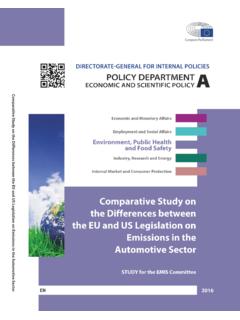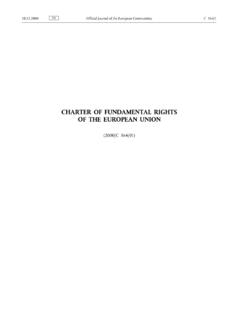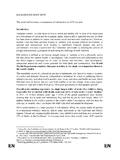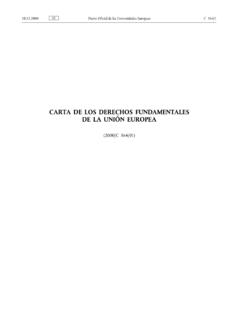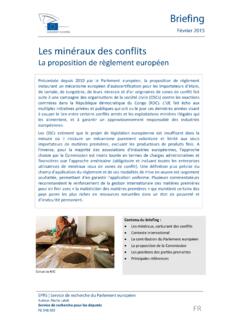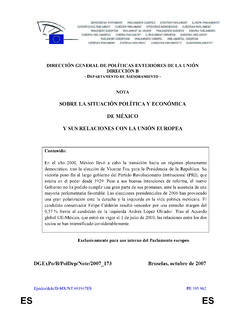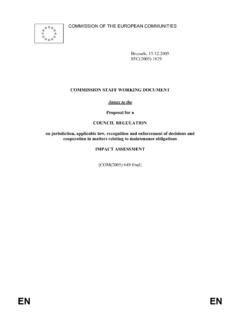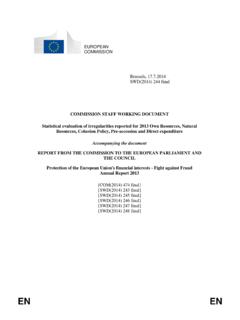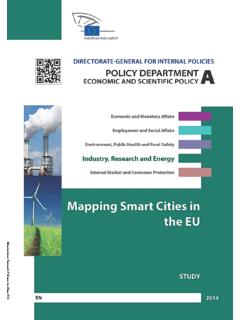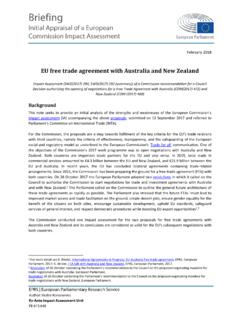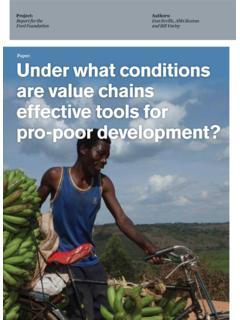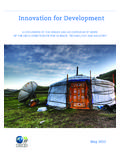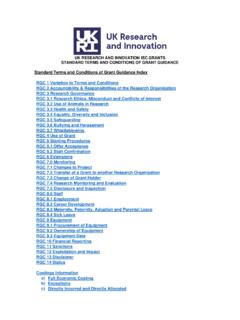Transcription of Towards a mandatory EU system of due diligence for supply ...
1 BRIEFING EPRS | European Parliamentary Research Service Author: Ionel Zamfir Members' Research Service PE October 2020 EN Towards a mandatory EU system of due diligence for supply chains SUMMARY The growth of international supply chains has undoubtedly brought enormous benefits to developing countries, but at the same time it has had certain negative impacts, relating for instance to violations of human and labour rights, including forced labour and child labour, environmental damage, land grabbing, and corruption. Multinational companies have gained unprecedented power, creating asymmetries in relation to weak regulation and enforcement in developing countries. For several decades, multinational companies have been encouraged to take responsibility for their supply chains on a voluntary basis.
2 Whereas in some sectors, where violations have been most egregious, particularly in the extractive industries or in timber extraction, mandatory frameworks have already been adopted at EU level, for others it was hoped that the voluntary approach, guided by several international frameworks, would suffice. The evidence available, however, from academic research, civil society organisations, implementation of the EU Non-financial Reporting Directive, and studies commissioned by the EU institutions, has made it clear that the voluntary approach is not enough. Against this background, many voices consider that the EU should adopt mandatory due diligence legislation. Human rights and the environment stand out as two areas where such legislation would be both most needed and most effective.
3 Beyond its expected intrinsic positive impact, such legislation would have important advantages, such as creating a level playing field among all companies operating on the EU market, bringing legal clarity, and establishing effective enforcement and sanction mechanisms, while possibly improving access to remedy for those affected, by establishing civil and legal liability for companies. The European Commission has undertaken some preliminary steps, including publishing a study and conducting public consultations, Towards a possible legislative initiative on mandatory due diligence . Its 2021 work programme includes a proposal for a directive on sustainable corporate governance that would also cover human rights and environmental due diligence .
4 In this Briefing Introduction Existing EU legislation and other initiatives: Lessons learnt Due diligence legislation at national level The need for binding legislation European Parliament position Stakeholder positions Outline of possible EU legislation Options for legislation EPRS | European Parliamentary Research Service 2 Introduction The idea that multinational companies should make efforts to increase their positive impact and minimise their negative effects on host communities and their sustainable development has been around for several As a consequence of globalisation, multinational companies have 'gained unprecedented power and influence across the world'.2 This enables them to avoid liability for their harmful impacts on local communities either by hiding behind the 'corporate veil' (when they act through subsidiaries and companies they control) or by exploiting weak and poorly enforced domestic regulation in developing countries, or by abusing the international investors' protection system .
5 In other cases, the development of global supply chains has unintended harmful effects, such as when independent local suppliers enter into a race to the bottom to secure their share of the market. Such was tragically the case when the Rana Plaza factory collapse in Bangladesh in 2013 killed over 1 000 people. Negative impacts of this kind, ranging from environmental disasters and land grabbing to serious violations of labour and human rights, are often in the news. This does not mean however that the local impact of multinational companies is always harmful. The situation is much more complex,3 as not all multinational enterprises are the same, and many actually drive development and create jobs, and also have important positive effects on human and labour rights.
6 They can be more respectful of human rights than local companies, as a survey of workers in Mexico has for instance shown, and can enhance labour standards. Even if the primary authority for enforcing human and labour rights or environmental norms resides with national governments, multinational companies could still do more to prevent harmful direct and indirect impacts of their activities, by improving transparency regarding their local suppliers and working together with them to improve human and labour rights compliance. The preferred approach to encouraging multinational companies to step up to this role has until now been based on voluntary action. It was expected that multinational companies would voluntarily conduct due diligence in order to avoid reputational damage and improve their standing with workers and customers.
7 Several international frameworks have been established as guidance, to encourage multinational companies to prevent negative human rights impacts, and when they occur to mitigate and remedy them. In 2011, the United Nations Human Rights Council unanimously endorsed the Guiding Principles on Business and Human Rights (UNGPs) establishing the first global framework outlining the duties and responsibilities of governments and business enterprises, to prevent, address and remedy the impacts of globalised business activity on human rights. The UNGPs are based on three pillars that outline how states and businesses should implement them: Pillar I: The state duty to protect human rights Pillar II: The corporate responsibility to respect human rights Pillar III: Access to remedy for victims of business-related abuses.
8 Of the 31 guiding principles outlined, principles 17 to 21 refer to the human rights due diligence to be conducted by companies. Academics and civil society organisations have criticised the UNGPs on account of their voluntary nature,4 showing that most companies do not voluntarily undertake human rights due diligence . Recognising the fact that the voluntary approach promoted by the UNGPs is insufficient, international negotiations in the UN framework on the drafting of an international binding treaty on business and human rights have started. According to the current stage of negotiations, the draft treaty puts mandatory due diligence of the heart of its approach. It requires 'State Parties [to] adopt measures necessary to ensure that all persons conducting business activities, including those of transnational character, to undertake human rights due diligence '.
9 The OECD Guidelines for Multinational Enterprises (2011 update) and the International Labour Office's ILO Tripartite Declaration of Principles concerning Multinational Enterprises and Social Policy (2017 update) also set voluntary standards for companies regarding due diligence . The OECD Guidelines, which are backed by 44 governments mainly from developed countries, is the only Towards a mandatory EU system of due diligence for supply chains 3 instrument to outline business responsibility for all relevant thematic areas, including human rights and labour rights, as well as information disclosure, the environment, bribery, consumer interests, science and technology, competition, and taxation. They were initially drafted in 1976 and have been revised several times.
10 The last update introduced a new human rights chapter in line with the UN Guiding Principles on Business and Human Rights and a new approach to due diligence and responsible supply chain management. The coronavirus crisis5 has had a profoundly disturbing effect on global value chains. This creates renewed urgency but also new opportunities for strengthening human rights and environmental due diligence by multinational companies. The crisis has revealed the fragility of global supply chains, which have been seriously disrupted due to travel restrictions, lockdowns forcing factories to stop their activities and other restrictive measures related to the crisis. Reliance on geographically distant supply chains has also proved to be a major vulnerability in the light of the medical equipment crisis.
